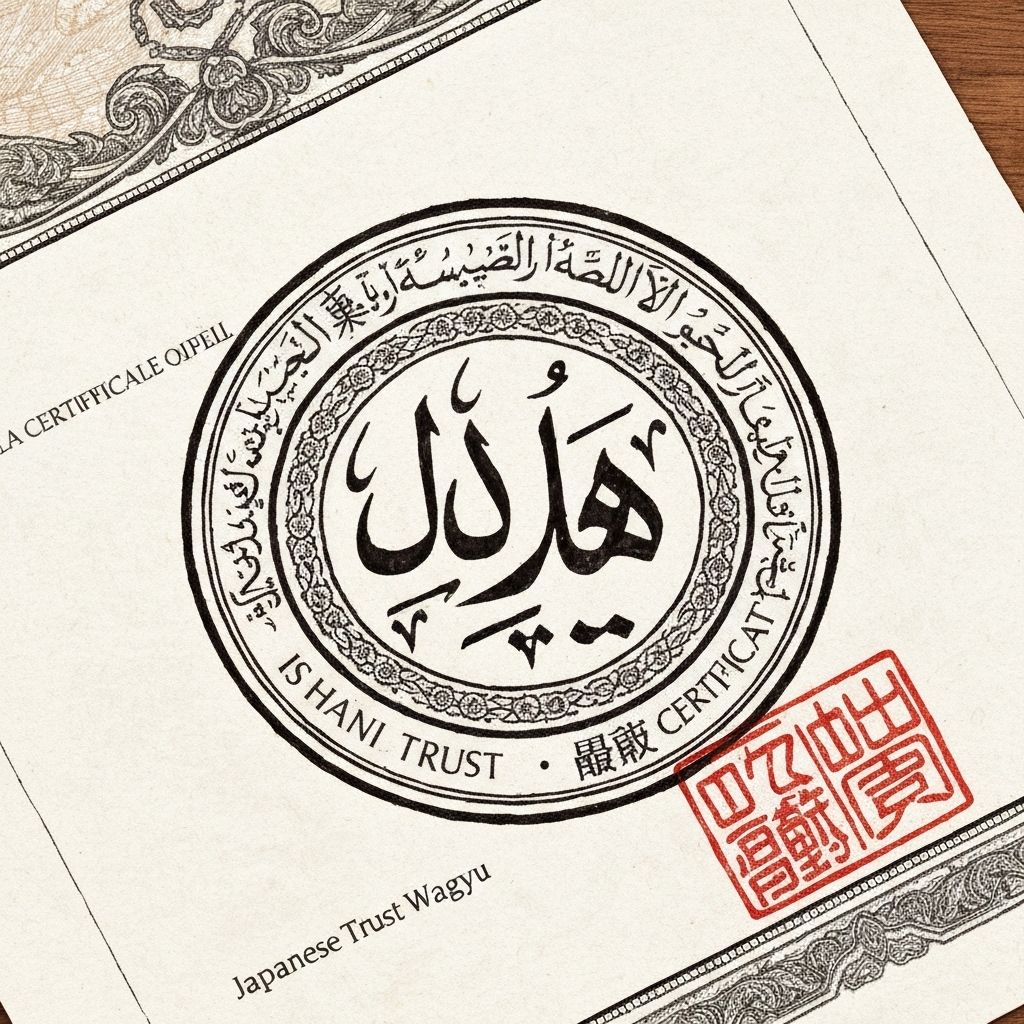The Halal Wagyu Revolution — Japan Meets the Middle East
There was a time when the word Wagyu belonged only to Japan — whispered in Kyoto restaurants and served in quiet reverence.
Today, it echoes in Dubai, Riyadh, and Doha — still sacred, but now shared.
This is the story of how Japan's most exclusive beef found a new home in the Halal world — without losing its soul.
A Meeting of Two Worlds
Halal and Wagyu seem worlds apart — one born in faith, the other in craft.
Yet both are bound by the same virtues: purity, respect, and discipline.
In recent years, Japan has quietly built a bridge between its centuries-old Wagyu heritage and Islamic tradition.
At the center of this bridge stands a new commitment:
To produce Halal-certified Wagyu beef, authentic in both spirit and taste.
The Beginning of Halal Wagyu
Japan's first Halal Wagyu processing facilities appeared in the early 2010s, led by the Japan Islamic Trust (JIT) and Nippon Asia Halal Association.
Farmers and butchers worked with Islamic scholars to adapt Wagyu slaughtering and handling practices — ensuring compliance with Sharia law while preserving Wagyu quality.
These certified plants now operate in Miyazaki, Kagoshima, and Hokkaido, approved for export to UAE, Saudi Arabia, and Malaysia.
Purity in Process
The Halal Wagyu process goes beyond ritual slaughter. It's a closed-chain purity system:
1. Feed: Plant-based and alcohol-free.
2. Slaughter: Performed by certified Muslim staff, invoking the name of Allah.
3. Processing: Fully segregated from non-Halal meats.
4. Logistics: Temperature-controlled export, monitored until arrival.
This precision ensures that what leaves Japan as Halal Wagyu arrives in Dubai unchanged — ethically pure, flawlessly preserved.
Japan's Export Vision
Japan's Ministry of Agriculture (MAFF) forecasts that Halal Wagyu exports to the GCC will exceed ¥6 billion (USD 40 million) annually by 2026 — with UAE and Saudi Arabia leading demand.
The Middle East is now one of the fastest-growing markets for premium Japanese beef, not for luxury alone, but for trust.
The GCC — Where Tradition Meets Taste
In Dubai and Riyadh, Halal Wagyu has become the gold standard for luxury dining.
Fine-dining venues like Nobu Dubai, 3Fils, and Sumosan Riyadh now feature A5 Halal Wagyu from Miyazaki and Kagoshima — a fusion of Japanese precision and Middle Eastern reverence.
The appeal isn't just in flavor — it's in values aligning:
• Purity of process
• Traceable origins
• Respect for life and nature
This connection has transformed Wagyu from an import to a shared cultural experience.
Certification & Traceability
Each Halal Wagyu cut carries:
• A QR code traceable certificate from Japan's Halal authority
• A farm-to-fork record of origin
• Japan's Geographical Indication (GI) seal verifying authenticity
These documents ensure every order can be verified for both religious compliance and source transparency.
At Wagyu Arabiya Trading LLC, these certificates are automatically available in the member dashboard — downloadable for restaurants and government clients.
Wagyu Arabiya — The Middle East's Halal Wagyu Gateway
At wagyu.ae, we stand as Japan's authentic Halal Wagyu partner in the UAE — certified, traceable, and delivered under full cold-chain protection.
We work directly with Japan's Miyazaki, Omi, and Kobe suppliers, ensuring:
• Halal certification by Japan Islamic Trust
• Temperature integrity from Japan to Dubai
• A5-only selection — no cross-grade imports
We bridge two nations that share the same ideals: purity, perfection, and respect.
A Taste of Faith and Craft
Halal Wagyu is not a compromise.
It's a union — where Japanese devotion meets Islamic integrity.
Every slice carries the quiet discipline of Shokunin and the spiritual purity of Halal.
And in that union, luxury finds its truest form:
Faith that you can taste.
